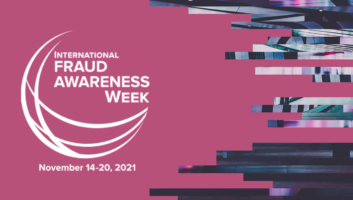Fraudsters know no boundaries. Even in the most demanding times, when we’re focused on the health and well-being of each other, there are highly skilled, organized criminals who use these circumstances to perpetuate attacks. In the fraud fighting business, this modus operandi is referred to as natural catastrophe and/or disaster fraud. Think of it in the same vein as insurance fraud; nefarious activities and claims associated with the destruction of property as the major attack type.
We’ve seen it happen…catastrophes, such as hurricanes, tsunamis, wildfires in Australia and the Dragi-Eberhard winter storm lend themselves to be the most opportune time for fraudsters to prey on the innocent and vulnerable. Manipulation of individuals through phishing, vishing, malware attacks and other channels have only one true purpose: to obtain an individual’s personal and financial data. Once this goal is achieved, the fraudster has the unfettered ability to take, manipulate and sell your identity.
As evidenced during this pandemic, the rise of incidents tied directly to these fraud attacks has demonstrated a broadening of targets both in quality and in quantity. As fraud experts, we are cognizant to this ever-changing environment and what it means to our customers, colleagues and partners. It’s imperative that we maintain our resolve and persistence as we combat today’s relevant scams, such as:
- Business Email Compromise: which target employees in an attempt to compromise account credentials to undermine legitimate funds transfers. In an official statement, the FBI said that losses from these scams have increased every year since its Internet Crime Complaint Center began tracking them in 2013. The FBI also says that organizations with limited IT resources are most vulnerable to these attacks.
- Testing and Treatment: Scammers are selling fraudulent at-home test kits or going door-to-door performing fake tests for money. They’re also offering fake cures, vaccines and advice on unproven treatments for COVID-19.
- Provider Posturing: This is when people are contacted people by phone and email, by scammers pretending to be doctors and hospitals that have treated a friend or relative for COVID-19, and demanding payment for that treatment.
- Phishing: Scammers posing as national and global health authorities, including the World Health Organization (WHO) and the Centers for Disease Control and Prevention (CDC), are sending phishing emails designed to trick recipients into downloading malware or providing personal identifying and financial information.
- App Scams: This is the creation and manipulation of mobile apps that are designed to track the spread of COVID-19 where the scammers insert malware that will compromise users’ devices and personal information.
- Investments: These scams offer online promotions on various platforms, claiming that the products or services of publicly traded companies can prevent, detect or cure COVID-19, and that the stock of these companies will dramatically increase in value as a result. These promotions are often styled as “research reports”, make predictions of a specific “target price” and relate to microcap or low-priced stocks issued by the smallest of companies with limited publicly available information.
It’s impossible to define what all fraud looks like, simply because the criminals will always change their behavior. Instead, fraud detection technology should focus on understanding normal, recurring behaviors and use that as a benchmark so that anomalies are easily detected. By combining machine learning and AI, these Adaptive Behavioral Analytics accurately identify changes in behavior.
The rapid, advanced identification of suspect behavior and incidents provides the highest accuracy while maintaining lowest point of friction for end consumers, like you and me. Perhaps, more importantly, it enables financial institutions to root out and stop the bad behavior of these criminals, shining a light on what is one of the most important aspects we have learned in this current global challenge today.
Stay safe and healthy. And let’s keep looking out for each other.
Share

 by
by 



